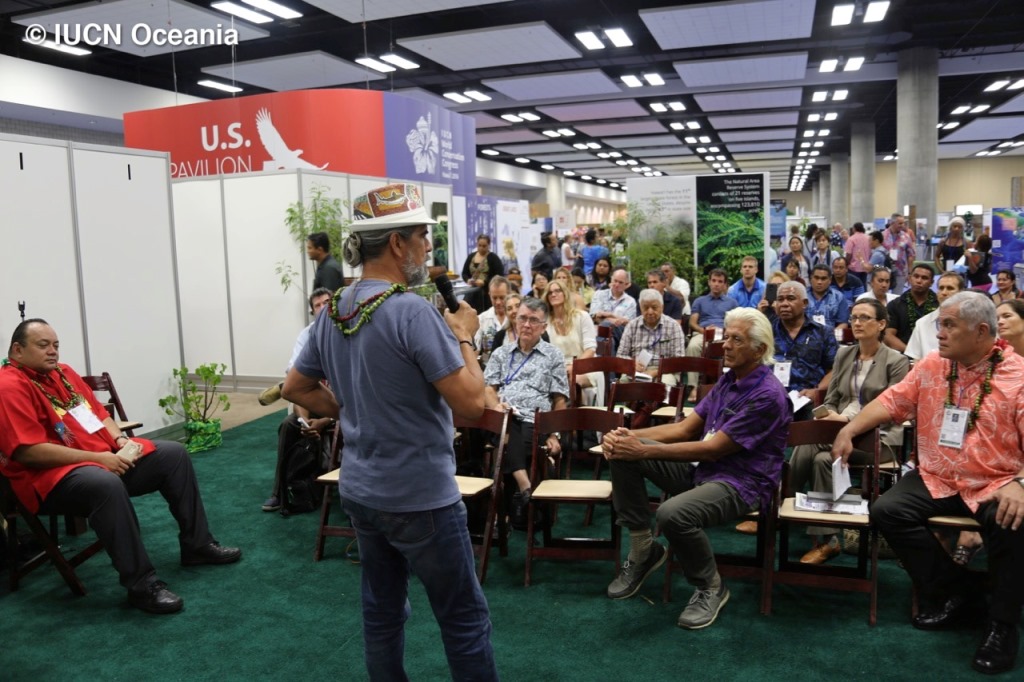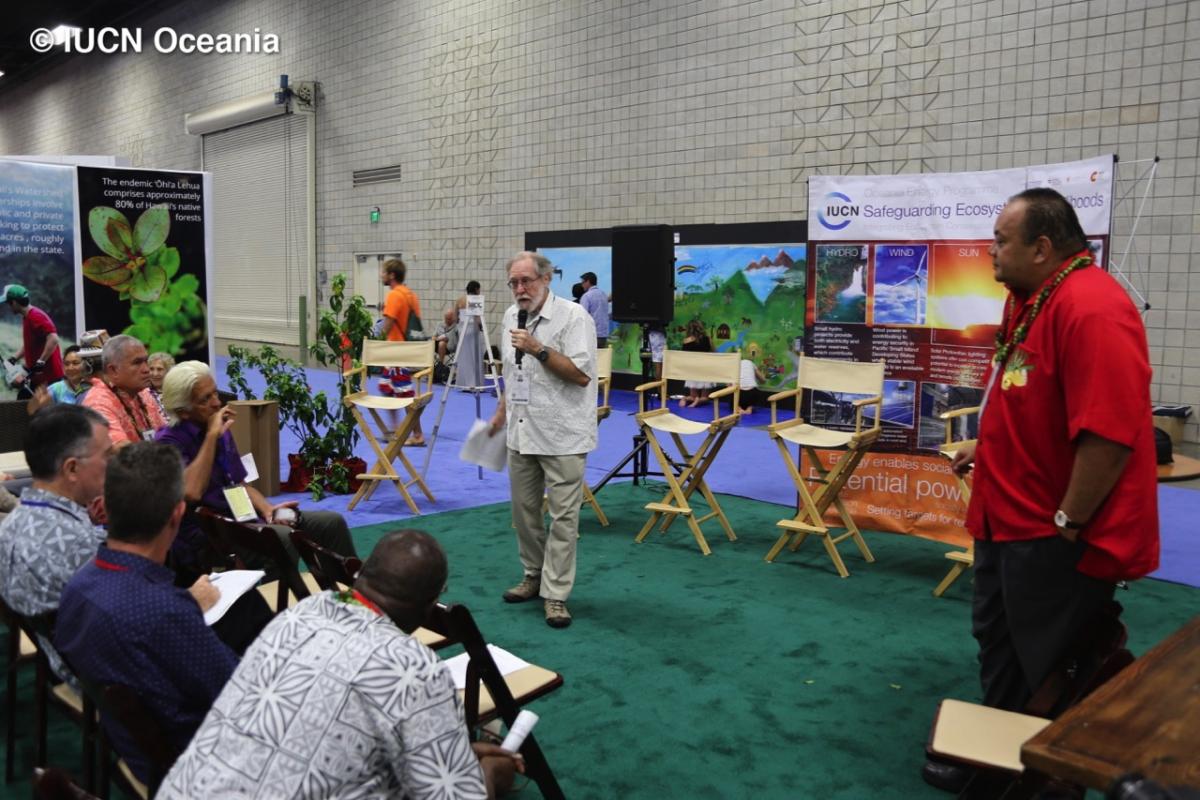Reaching a sustainable energy future for Pacific Island countries
The IUCN Oceania Regional Office (ORO) collaboratively hosted events with the State of Hawai’i at the Hawai`i Pacific Pavilion assembled for the IUCN World Conservation Congress from 1-10 September 2016.
In keeping with its contributions to ongoing action in energy matters around the region, the IUCN ORO Energy Programme had the opportunity to convene a panel on 4 September, which featured Tonga’s Deputy Prime Minister, Hon. Siaosi Sovaleni, CEO and Chairman of Blue Planet Foundation, Henk Rogers, CEO of American Samoa Power Authority, Uta Abe Malae, and Manager of the Hawaii National Marine Renewable Energy Center at the Hawaii Natural Energy Institute (University of Hawaii), Dr. Luis A. Vega.
The pavilion session moderated by Peter Johnston, a Fiji citizen with over 40 years of professional experience in environmental management and sustainable energy, discussed how several Pacific Island countries and territories (PICTs) have established ambitious renewable energy targets to increase their energy security, reduce their dependence on imported petroleum fuels, and provide the opportunity to reduce carbon emissions. An example of this is Cook Islands, Fiji, Niue, Samoa, and Tuvalu establishing a 100% renewable energy target by 2020. However, due to high costs associated with imported petroleum fuels and PICTs’ vulnerability to climate change impacts – these are the two of the most prominent drivers to meet this goal.
The policies are often supported by the nature and level of development assistance – both bilateral and multi-lateral funding made available to the countries. Donor support has helped develop national energy frameworks and policies, and also helped to finance a shift towards renewables. Despite the assistance provided by development agencies thus far, it was made clear by all speakers, a broad understanding of financing limitations and risk aversion will inhibit uptake of renewable energy investment unless policies are in place to create opportunities for private sector and donor partnership and participation in Renewable Energy (RE)/Energy Efficiency (EE) technology. With renewed endorsement and direction from its global membership, IUCN ORO’s Energy Programme aims to create better linkages between ecosystem services and all sectors of society to participate in holistic planning for sustainable models of energy generation and consumption to ensure a safer future for the region.
What does this mean for future years?
It means the IUCN ORO Energy Programme will work towards providing broader understanding of the successes and savings in both cost and emissions seen thus far in IUCN ORO energy projects and initiatives. The Energy Programme will continue to help countries scale their solutions to national institutions and work with additional communities to build a more complete understanding of practices and technology, which may be chosen, invested in, and applied to reach the sustainable energy future the countries of the Pacific are now committing to provide for their people.


